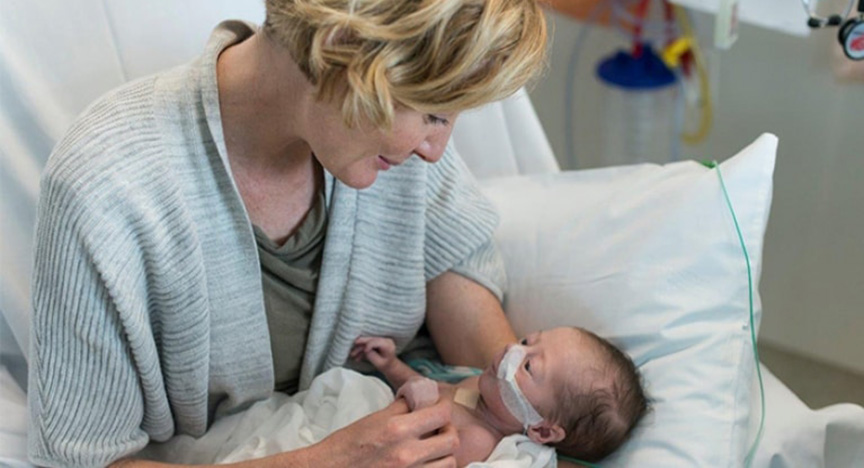
When a young baby is admitted to hospital, it’s often a stressful time for mothers, who understandably worry about how they will continue to breastfeed. It’s important to try to keep breastfeeding if possible, because when your breastfed baby is unwell, your body will produce antibodies to fight the specific bacteria or virus causing the illness. These antibodies will then become available in your breast milk to support your baby’s immune system.
Here are some handy tips on how you can maintain your breast milk supply for your baby, even when they cannot feed at the breast due to illness, medical procedures or surgery.
Supply and demand
It is important to express breast milk to maintain your supply if your baby is too unwell to breastfeed, or if they need to fast before surgery. Your milk supply works on a supply and demand basis; if the milk is removed – it will be replaced.
When you are very tired and stressed as a breastfeeding mum, you may find it more difficult to “let-down” your breast milk or to establish a good flow. Before you express, try the following to boost your relaxation and pumping efforts:
- Cuddle your baby (skin-to-skin, if possible) or sit close to them, smelling their scent.
- Apply warmth to your breasts with a heat pack or shower and massage your breasts in order to stimulate your flow.
- When you are not near your baby, it may help to look at photos or videos of them, or smell your “cloth heart” (fabric hearts placed on the chests of mothers and babies to absorb their scent and then swapped so mother and baby are left with each other’s scented heart).
Plan ahead for your trip
If your baby’s hospital admission is pre-arranged, it may be helpful to express breast milk for them a few times a day in the lead-up to hospital. Many mothers find their milk supply drops when their baby is in hospital, so having a backup supply in your freezer may be extremely beneficial. Even if your baby is continuing to breastfeed while they are unwell, if they are not feeding as well as usual, it may still be wise to express a few times daily to boost your milk supply.
Make sure nursing staff also know you are breastfeeding. It should be recorded on your child’s record.
Self-care is essential
Don’t forget to look after yourself while your baby is in hospital. Remember to eat nutritious meals and snacks and to drink water and rest whenever possible. Always ask for help when you need it.
Checklist for expressing
- Hospital-grade electric pump.
- One-day breast pump kit.
- Expressed breast milk (EBM) bottles.
- Syringes or a small jar to collect drops of colostrum if your milk has
not yet “come in”. - Baby’s identification (ID) stickers (provided by hospital) to label each bottle/syringe of expressed breast milk. You will also need to initial each ID label to confirm it belongs to your baby.
- Expressed breast milk labels – To write the date and time you expressed your milk.
Most hospitals will provide expressing equipment but it’s worth checking before admission.
Staying at Queensland Children’s Hospital?
If your child is in the Queensland Children’s Hospital, lactation consultants are available to assist you with any breastfeeding or breast milk supply concerns. Simply ask your child’s nurse to arrange a meeting. Find out more about our lactation consultants.
Useful resources
Expressing breast milk for your baby fact sheet
The Australian Breastfeeding Association
Call the 13HEALTH (13 43 25 84) confidential phone service 24 hours a day, seven days a week for support and advice.